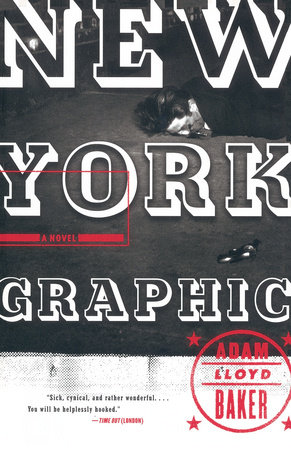Time on the Street
by Scott Lasser
It’s early October, and at 7:10 A.M. someone starts killing the July 22 Treasury bill. I am a Treasury-bill trader, and I can’t understand why this is happening. For the last six weeks, there have been buyers of bills everywhere. At one thirty this morning, I sold two hundred million dollars’ worth of three-month bills to a Japanese account from my bed. At 5:40 A.M., just as I was leaving my house for work, I got a call from London, and sold two hundred and fifty million six-month bills to a Dutch account. The globe is experiencing a financial panic, and in a panic everyone wants to buy Treasury bills. Except, apparently, the July 22 bill.
I watch as five hundred of these bills trade at very cheap prices, and then step in a buy a couple of hundred for myself. (Treasury traders rarely say "million." or "million dollars"; it’s understood.) I figure there can’t be many more for sale. I enter the trade into my Sun workstation and wonder who the seller is. There are maybe half a dozen traders who could drop three-quarters of a billion July 22 bills on the market before the office coffee is brewed, and on this morning I think I know who it is. It’s my friend Josh, a guy at a "big shop." (Names have been changed.) The big shops are the large primary dealers, like Merrill Lynch, Goldman Sachs, and my firm, Lehman Brothers. Their Treasury traders often execute trades through inter-dealer brokers, who "flash" these trades on a screen and are thus called screen brokers. Treasury traders spend their lives studying these screens and trading on them. No name is ever given to a screen trade, but I know certain people’s styles and can sometimes figure out who is involved.
I call Josh and ask, "Is this you murdering the July 22 bill?"
"Dude," he says in a drawl part surfer and part Southern, "I got these things to go."
A hedge fund has sold him a billion and a half July 22 bills. What’s worse, I soon learn that the fund has more to sell. I have been foolish to buy the bill. This is not, as I’d thought, a case of a T-bill getting a little undervalued: it’s liquidation on a large scale.
I start to sweat. Usually, I don’t sweat until late morning, when the heat from the computers starts to overwhelm the building’s cooling system. On the floor, traders sit shoulder-to-shoulder, hunched in front of computer screens, stacks of them: even when I stand up I cannot see the person who sits opposite me. Each of these screens gives off a lot of heat; our ten-year-note trader uses one to warm his morning Pop-Tarts. Traders respond to the heat by employing fans, though often the only space available for a fan is under the desk, where it is called a "ball fan."
I am a short-term trader, holding bills for a minute or two, sometimes a few seconds or a couple of days, and almost never more than two weeks. I want out, but selling what I’ve bought is impossible, so I hedge the position and the next day sneak out of the trade even. Several weeks later, the hedge fund can’t meet its margin requirements, and it folds.
Treasury-bill trading is a mean and scrappy business. My phone board beeps to let me know a salesman is looking for me. He’s sitting in the next row, twenty feet away, with his customer, a mutual fund, on one phone and me on another. "Scott," he asks, "where can you offer XYZ Fund five hundred million six-month bills?"
This means the fund wants to buy, and it’s my job to put a price on the trade. For every security, I have to price: the bid price, at which I will buy, and the offer price, at which I will sell. The difference between them is called to bid-offer spread. The bid-offer spread is like the difference between wholesale and retail, but, unlike at the Gap, say, the prices of my goods fluctuate on a second-by-second basis, and, as in this case, I may not own what I’m selling. This is called being short.
I give the salesman my price, and he says, "You’re done." That’s it. A five-hundred-million-dollar transaction.
But now the word’s on the street that I need five hundred million six-month bills–and lots of traders have rushed in to buy them up, figuring that they can sell them to me at a profit. As these buyers drive up the price, I lose money: I’ve sold bonds at a price lower that I’m now going to have to pay to get them. I pound my fist down on the Formica desktop, but taking losses is part of the job.
Five hundred million is a big trade, and I’ve provided liquidity to a large mutual fund. On a typical Treasury-bill trade, how much is the bid-offer spread? A grade? The answer is twenty-five dollars. Twenty-five dollars! Six minutes have passed since I fist received the inquiry. I move on to the next trade.
About a week after the July 22 bill trade, Josh and I go out to dinner with two of our brokers. Trading is fairly impersonal, and going out gives me a chance to meet the other guys in the market. Besides, you never know when you’re going to need help finding a job. The brokers are there to provide the introductions, and more important, to pick up the tab.
The night of the dinner is clear and cold, something I notice as I leave Lehman’s offices at the World Financial Center and cross Vesey Street to a broker-provided Lincoln Town Car. Ordinarily, I commute by car pool with two other traders. We part in the basement of the building, so we don’t go outside even when we arrive. I eat lunch at my desk, if I can find the time. There are no windows nearby, and therefore I rarely have any idea of the weather. Now that it’s late in the year, I arrive at work before dawn and leave after dusk.
We meet at a trendy sushi restaurant. If you ever want to feel like an outcast, put on a dark suit and go out to dinner with a couple of traders at six o’clock in SoHo. We’re the only suits in the place, and the hostess escorts us to the rear of the room.
Josh is six-one or two, with coal black hair, black-framed glasses, and a swarthy complexion. "Look, man," he says as we wait for his broker to get the hostess’s attention. "I’m telling you, I’ve never seen markets like these."
Josh’s broker has chosen the restaurant. He’s a dark-haired man of maybe forty, with a paunch and a wide and ruddy face that comes, I imagine, from a heavy regimen of restaurant food and alcohol. My broker is also a prodigious drinker. I can’t but help but like him, partly because he’s always so grateful for the business I send his way. He’s thirty-five and still plays rugby on the weekends. I often spot a scrape on his chin or a swollen cheek; tonight there’s a small bruise beside his left eye, and somehow it almost seems to me as if the business were beating him up. We let him do the ordering, and Josh and I chat about work. We know we are living through extraordinary times, and close beneath the surface of the conversation is the fear that our jobs are in jeopardy.
When the second round of drinks arrives, Josh brings the conversation around to "the number." This is the standard destination of such conversations: how much do you need in the bank to walk away? Every trader has a number. You know that you can lose your job at any moment, that each workday takes its toll on body and mind, and that the job prepares you to do nothing else. Your career becomes a race to squirrel away a bundle.
Most guys I’ve spoken with on the Street come in around four or five million. I have heard numbers has high as twenty-five. Of course, those successful enough to walk away rarely do so. They buy German cars, boats (one Lehman manager is rumored to own four), airplanes, estates, vacation homes.
"What do you think you need, half a million in the bank?" Josh asks.
A half-million dollars is a laughably small number for a trader, and I know he can’t be serious. Even at the rate of ten percent per year, that’s only fifty grand a year, out of which you must pay taxes and reinvest a portion to keep the value of the principle up with inflation. Nobody aims that low.
I tell him half a million is not enough.
He agrees. "But to most people it’s still a lot of money," he adds.
I ask him what he would like to do when he leaves trading.
He adjusts his tie. "I don’t know, man, but I’d like it to be something totally different. I just don’t know what."
Financial panics are hell on banks. Lehman Brothers stock falls to roughly forty dollars a share, which is about what the company would be worth if you closed it down and sold off its assets. And then things get bad.
Rumors hit the market that Lehman is about to collapse. Investors are demanding six percentage points more than Treasuries to buy Lehman’s own corporate bonds. I take a call from a former Lehman trader who now works for a competing firm.
"You guys still making markets for customers?" he asks.
"Yep." I look down the row. All the traders have their noses close to their screens. The salesmen are at their stations. There’s a maintenance man in a blue jumpsuit fooling with the thermostat.
"You sure? ‘Cause I heard you’re not open for business."
There are no outward signs of problems: the lights are still on, paper towels still show up in the bathroom, there’s coffee in the pantry. But I have no idea what guys are doing in emerging markets or corporate bonds, and I wouldn’t even recognize a Lehman stock trader. What I do know is my little bunker of a seat, where I stare at a stack of broker screens piled four feet above my desk, where to my left is a second wall of computer screens with yet more price information and analytics, and where the firm’s one Canadian trader sits eighteen inches to my right. But what about just three feet beyond my broker screens, where the derivatives guys work their alchemy? Who knows?
"Ray," Andy says that night. We are stuck in a sea of traffic on the F.D.R. "With this crisis, the Japanese are practically giving away cars. Why don’t you wave in a new one and get rid of this piece-of-shit white Infiniti?" Ray’s Infiniti is a 1993, with more than a hundred thousand miles on it. Andy is one of the senior traders on the government desk. He drives a new BMW 540, and has been complaining all year about riding in such an old car. My car is a 1993 Ford Escort, but I never drive. Instead, I pay Ray and Andy an extra commuting fee, for what they call their "pain and suffering."
"Are you kidding?" Ray, a corporate bond trader, says. "A new car? Don’t you know what’s going on in the world? I got a bad feeling about this one. Bankruptcy is not a good thing."
Bankruptcy would hit me hard. I’ve just paid off six-figure business school loans and don’t have any savings. I’m still new–I’ve been at Lehman three years—and at the low end of the pay scale, and I’m counting on my year-end bonus. Most of a trader’s pay comes in the form of that bonus, and isn’t handed out until early the next year. If the firm folds now, I’ll lose most of a year’s pay, pay that I’ve already earned.
This is not the life I planned. I came to Wall Street so that I wouldn’t have to worry about money again. I had been living in Colorado with my wife and son, writing for a living: nature shows for public television, an occasional technical manual, the odd piece of journalism. I supplemented my income by teaching skiing and, one desperate Christmas season, by waiting tables. In our best year, we made less that thirty thousand dollars, and the lean years were lean. I remember grocery shopping one day and putting off the purchase of a jar of peanut butter in order to stretch our food budget. I left the store and felt that something was terribly wrong. I was thirty years old and had degrees from good universities; I felt I should be doing better.
I started looking around for a lucrative day job that wouldn’t bore me, and I settled on trading. I’d read about its pace and locker-room atmosphere, and I thought I might be good at it. What I wanted was lots of money, so much of it that after a ten-year career I might not have to work again. This was the promise of Wall Street. I knew that the hours would be long, the pressure intense, but I was willing to put up with all this if I could get the money. The phrase "get the money" became part inside joke, part mantra with my wife and me. We were sick of being poor.
Wall Street firms don’t hire freelance writers to trade bonds. I took the G.M. A. T., applied to business schools, and eventually matriculated at Wharton. In less than two years, I was working on the Street. I can’t help but think that I missed to good years. My manager leaves resumes face up on his desk, to remind the traders of our expendability. My household income reaches six figures, but for a family of four in the New York area–we had a daughter after we moved–this is nothing special, and it hasn’t been easy to save.
My wife and I have discussed our number many times, and we settled on the far-off fortune of two million. We’ve figured that two million could safely throw off a hundred and fifty thousand dollars per year, and on that we could live handsomely outside New York. We’ve also figured on ten years to make our number, or at least to get close to it. It’s been going on four, and we have nothing put away. I hadn’t thought that I’d have to earn almost two hundred thousand dollars just to pay off my student loan, but even without that I can see now that my expectations have been too high. One Sunday afternoon, I talk to my wife about leaving after this year’s bonus.
"You’ve got to stick it out a little longer," she says. "We’ve come too far to quit now."
In this environment, it’s not easy to keep the faith. Firms like Lehman have found it harder and harder to make money in the bond business. In the secondary market, customers have Internet-based trading systems that allow them to send a request for an offer to five dealers simultaneously and buy the bills from the dealer with the best price. The systems also send out pricing information on every bond in the Treasury universe, creating total pricing transparency, and pricing transparency is to a dealer what daylight is to a vampire. U. S. Treasury traders have another worry: our market is shrinking. The government has been running surpluses, and so it is issuing less new debt that it is retiring. This means that our liquidity is drying up just as the new computerized trading systems are reducing what we can charge for liquidity.
Just last year, wee used to joke about the franchise value of a government-bond seat. We’d say that you could put a monkey in the seat and it would make money. In those days, if you were standing by the desk when an easy trade came in, you’d hear men in dress shirts and ties, many of whom were making between half a million and a million dollars a year, screeching like chimpanzees at the trader who got the juicy trade. It’s not a joke that you hear anymore.
"Hey Scott! Pick up!" This is a broker talking to me through one of the squawk boxes on my desk. I have eight, two stacks of four. All day long, disembodied voices come through these little speakers, telling me what’s happening on bill trades, or giving me updates from the Board of Trade or the Mercantile Exchange in Chicago.
I pick up the broker, who tells me that Josh has been fired.
I want to call him, but I figure he’s probably not home yet. Besides, I’ve got a situation on the desk. I bought a large amount of three-month bills in an auction, and the market is not obliging me by going up. I resolve to call Josh the next day.
Spend time on the trading floor and you’ll see plenty of people get fired. In my first year at Lehman, I was given more that a week off while the firm "cleaned house." It was felt that the presence of newly minted M. B. A.’s would breed resentment, although management could not resist replacing people who made five hundred thousand dollars a year with those who made less than a hundred. One day, the trader sitting next to me got into an argument with the head of the desk, who called him into the office and fired him. The trader came out of the office and packed his belongings into two small boxes, which I helped him carry to the elevator. We shook hands and he was gone. From incident to eviction was no more than twenty minutes. He’d been a big producer at the firm for more than a decade.
The news about Josh depresses me. Add to that a day of trading, and by the time I leave that night with my car pool the effects are physical. I’m hot and sweaty, my back aches, and my right hamstring is tight from my having sat in the same position all day. There’s a viselike sensation at my temples. I’m not the only guy feeling this way. Andy has to readjust the BMW’s rearview mirror because the day has literally beaten him down; he can no longer sit high enough to see out of it.
Several days pass before I finally search out Josh’s home number.
"Thanks for calling," he says. "Really. I appreciate it. You didn’t have to."
I sense shame in his voice. I ask what happened.
"The word came down that they had to cut a body, and my boss, well…You know how that goes."
"What are you going to do?"
"I’m talking to people. Some not even in the business. I’ll land somewhere."
In mid-December, I get called into my manager’s office to learn what my total annual compensation will be this year. It’s a figure that is decided subjectively, in secret, and then announced at year’s end. Profitability matters, of course, but big numbers can be explained away by management, and some well-connected traders always manage to get more than their fair share. In the end, I figure that traders are usually paid around fifty to seventy per cent of what the firm thinks the trader could get from a competing firm. Managers, on the other hand, seem to earn in excess of that they might be worth elsewhere. At least, that’s my sense of it. Lehman managers rarely leave the firm, which they would if they were able to do better for themselves elsewhere, whereas Lehman traders are heading for the door all the time.
My manager is a man of medium build and height. His eyes are round and small, set deep in a face that often seems to be smirking but can turn expressive with rage. I spot a pile of resumes on his desk. There’s a window behind him, through which I can see Stuyvesant High School and cement-gray sky. he briefly acknowledges that I had a good year, but spends most of his time talking about what a tough year it’s been for the firm. I almost beg him to stop. This is my fourth bonus discussion, and it has become unbearable to listen to all the reasons that the firm can’t pay me more. My bonus comes to a little more than two hundred thousand.
Two weeks later, the firm announces record profits for the year of three-quarters of a billion dollars. The firm’s operating committee takes home nine figures just for itself. "If you don’t like what you’re making," my manager once told me, "go find a job that pays you more."
When Lehman’s stock price begins to rise, Andy starts in again about Ray’s car.
"C’mon, Ray," he says. "This piece of shit Infiniti is going to break down and we’ll freeze to death on the side of the road."
"You mean you will," Ray replies. He keeps a down jacket and a bottle of Gatorade in the trunk. My guess is that he makes more than five hundred grand a year.
Andy, who surely makes more, never wears an overcoat, even in the dead of winter. "Bonuses are about to hit," he says, "You’ve got no excuse."
Bonuses arrive in February, and I notice a few new Porches and Mercedeses in the parking garage. Meanwhile, we wait for the jockeying to begin. It is part of the seasonal rhythm of Wall Street that people change jobs early in the year, once they have cashed their bonus checks. The seat next to me opens up when our Canadian trader is fired and not replaced.
In April, my manager is replaced by the head strips trader. Then the other strips trader quits, leaving the firm without one. I end up with a permanent position in the strips seat. My move to the strips desk is a major promotion, earned, as many are, by simply surviving. My profile and pay will certainly improve.
It’s now mid-May, and Lehman Brothers is without a Treasury bill trader. It isn’t long before Josh comes in for an interview. He looks about the same: dark, tall yet slightly stooped, with an expression that’s a bit quick to break into a smile. He’s been out of work for six months. "Staying up late," he says when I ask what he’s been doing. "Sleeping in. Trading my own account online. Watching way too much daytime television." He makes it clear that he is desperate to work. I remember him once saying that he wanted to do something outside the business, but he’s been on the Street since he got out of college, and what else does he really know?
The next week, he has my old job.
As a strips trader, I’m making about fifty percent more than I made the previous year. Before I started in the business, my wife and I thought this was wild, crazy money. Now we don’t. Once we’ve given almost half to the government and have paid to live modestly in Westchester, we’re not able to put away much, certainly not enough to get to our number, even if I can last ten years.
It embarrasses me to write this. Before I went to business school, I figured a salary of seventy-five thousand a year was more money than anyone should really hope for. Obviously, my idea of necessity has expanded. My children’s clothes tend not to come from thrift shops anymore. My wife buys organic food and I say nothing about the expense. We just bought a new CD player, and we eat out a little more often. But it’s not kind of life. I am thirty-seven years old. I have a wife and two small children. If I don’t see them now, when will I see them?
By late summer, I’ve made up my mind to leave. We put our house on the market. In the meantime, we buy a house in Colorado, and my wife and children move there to start the school year. At work, I pretend that nothing has changed. I move in with friends in Yorktown. My hosts are kind and generous, but the room I’m given above the garage has no insulation and only a space heater to warm it; it’s not a place where I want to linger, especially when the cold hits in January. I have my old phone number forwarded to a new line in Yorktown, so that Tokyo and London can dial the same number and not be any the wiser. A person with a normal job would give two week’s notice and leave, but I can’t do that. Company policy is that people who resign or are let go before bonuses are paid receive no bonus, and my bonus will amount to more than two-thirds of my pay. I’m not taking any chances until that check is in my account.
One December night, I find myself drinking a Coors Light in the back of a white stretch limo, its interior decked out with Day-Glo lights and a mirrored ceiling. Around me sit four of my fellow Lehman government traders, plus two brokers from the Board of Trade who have made the trip in from Chicago to entertain us. It’s year’s end, and the mood is nostalgic. As we crawl up the east Side toward the Italian restaurant where we are to eat dinner, we start to name all the people who once worked in the government-bond business at Lehman. The conversation becomes, as conversations among traders often do, a competition of sorts. We shout out names, conjuring up our common history. Cooper, Keusch, Kathy, Edmo. Abbas and Samer, Capra and Estes. Schupak. Jesse, Fumai, Pasta, B.B., Bragg, Cordrey, Foley. In the end, we come up with forty or so traders, roughly three times the number of people who work there now. "We ought to put their names up on the wall," one trader says as we pile out of the limo and stumble toward the restaurant. "Like the Vietnam Memorial." I think of my name on the wall.
It’s an off bonus season. In normal years, management starts early with what we call the hookeyduke: prevarication about losses and hardships that will keep a lid on bonuses. But this year, silence. My guess is that I will be paid about half of what it will cost to replace me–a lot of money in the real world, but a pittance on Wall Street. Besides, who want to work for half price?
We get our numbers on December 16th. At about one-fifteen, my manager calls. he tells me how to find him in an office above the trading floor.
I take a seat in the windowless office, bare except for an easel that stands next to my chair, as if I were part of an exhibit. True to this year’s style, it’s a short bonus talk. My manager sits behind the desk, in white shirtsleeves. Throughout the meeting, he twirls a pencil in his right hand. In front of him is a blank legal pad and a sheet of paper with a figure on it. He slides the paper over. About three hundred, as expected.
In years past, I’ve spoken in bonus meetings, but this is my fifth and I’m beyond that. Nothing I say now will get me more money.
"Is that it?" I ask.
"That’s it."
I’m back trading by one-thirty.
I have a decent December, but January proves to be my worst month trading ever. This problem is compounded one Monday morning when I return from the men’s room and my boss tells me that I’ve just bought a hundred and seventeen million twenty-year bonds from a Boston account. That is, my boss priced the trade but he apparently expects me to take responsibility for it. I jump into my seat and try to hedge it, but the market immediately plummets and the original price my boss paid for the bonds was too high. I lose a hundred and seventy thousand dollars on the trade.
I am livid. The rule is that if you price a trade it’s yours. I also know that if the market had gone up after those bonds were bought the trade would not have been put in my ledger; my boss would have kept it because it was profitable. I through down my headset in disgust. Under normal circumstances, I should stand and fight right there, but we’re in a new year, one in which I won’t get a bonus. My boss can jam all the losers he wants into my ledger, and it won’t affect me; in fact, within a week he’ll be stuck with them. I do go through the motions, though. I ask for a private meeting and am ignored.
That night, my Escort breaks down in the driveway of the house where I am staying. The next morning, it snows eight inches and I can’t get a tow truck to answer my call. I decide not to go to work. I have no good way to get there, and no desire to go.
The next day, the twenty-sixth, I get called into an office by my manager. He has the bulk you might expect of a man who has spent the better part of fifteen years sitting at a trading desk, and the stiff walk of a man twice his age. In fact, he’s only two years my senior. He scolds me for not coming to work the day before. I use my infirm Escort and the weather as an excuse.
My boss finds this inadequate. "People around here make a lot of money," he says. He pauses, and gulps in a breath. "Even if they don’t think it’s a lot of money. And we’ve got to have the desk covered."
Instead of ceding the point, I bring up what I’ve come to think of as the toilet trade. I’m still angry about it, and finally I have an audience. I should have realized sooner in my career that misbehaving was the best way to get attention. My boss contends that it was my fault for being in the men’s room. He is deadly serious. I should have made sure I had backup (he is my backup) and alerted the sales force in the branches.
I go back to my desk, and Josh walks down the row for a visit. He’s mentioned before that it’s odd that we seem to talk less now that we work fifty feet from each other than when we were at different firms. "I’m in a book group," he tells me. The book group consists of him and one of his brokers. "We’re reading ‘The Grapes of Wrath.’ I tell you, that man can write."
I tell him that I agree, that I think Steinbeck is underappreciated. "So," I ask, "How are bills?"
He shakes his head. "You don’t want to know."
My phone chirps. One the trading desk, a ringing phone takes precedence over a live conversation. Josh heads back to his seat.
"Lehman," I say, quick and brusque. It’s typical trading-desk etiquette.
"Scott Lasser, please." my wife says. Even after all these years of calling the desk, she still has a hard time recognizing my Lehman voice.
"It’s me," I tell her.
"It’s dumping," she says, referring to the snowfall in Colorado. She’s been skiing, and is calling to tell me about it. Meanwhile, one of the new associates on the desk is tapping me on the shoulder. Because I wear a headset, he can’t tell that I’m on the phone. He says that my manager wants to see me in the office again.
"I gotta go," I tell my wife. "I think I’m about to be fired." I’m only joking, but my wife nearly panics. It’s so close to bonuses.
"Checks are in," my manager says in the office. He hands me my bonus check.
Over the years I’ve spoken with traders who fantasize about quitting solely for the purpose of telling off their bosses. I’ve had a few of those fantasies myself. But when I walk into my manager’s office a little after eight-thirty on the last day of January I find that I want to make it quick. "It’s not worth it for me to continue to work here," I say. "It takes too much time for the money."
My manager addresses the time issue.
"The hours are the hours," I say, "I don’t expect you to change them. And, as for the money, I’m not here to haggle. I’m set to go. I hope you will do your best to get me out of here quickly."
Next, I meet with my manager’s boss, the man who runs government trading worldwide. he starts off in a friendly tone, explaining that he wants me to stick around for a few days while they make arrangements.
"I have plans to leave town tomorrow," I say.
"Well," he snaps, "You’ve just going to have to change those plans."
I say nothing. I watch him fume and think he is a man accustomed to getting his way, especially with people like me.
"You’re supposed to give two weeks," he says.
"Not traders."
"Yeah, if you’re going over to Merrill we don’t want you on the desk. But you’re not doing that. Did you think you couldn’t tell us? You though we’d screw you out of your bonus?" He stares off to the side, shaking his head slightly.
I think about Josh, who got fired ahead of his bonus; I think about a profitable prop trader from Lehman’s derivatives group who was canned the previous December, ahead of his bonus. Of course I thought he’d screw me out of my bonus.
"Jesus, Scott," he’s saying. "That’s not the way Wall Street works."
After that meeting, I spend about ten more minutes on the desk, waiting to be processed out, and I use the time to say my goodbyes.
"You son of a bitch," Andy says when I tell him. He’s smiling. "Good for you. You don’t want to stick around here. What are you going to do, go back to Colorado?"
I nod.
"Putting your house on the market?"
"Already sold."
"You son of a bitch," he says.
I work my way down the row. My fellow-traders wish me well, and most express envy at my plans, even those who I’m sure will never leave. It isn’t long before I’m at Josh’s seat. He’s wearing a white shirt and pin-striped slacks. From behind, with the phone at his ear and his dark hair, I could almost mistake him for myself.
"Sell another," he tells his broker. It’s Monday, the day the Treasury auctions bills, typically a busy day for a bill trader. "Another!" he yells.
Originally appeared in The New Yorker
Copyright (c) 2001 by Scott Lasser



























